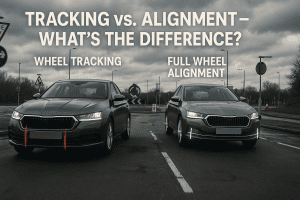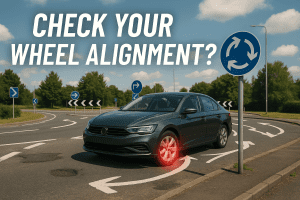It’s a chilly January morning in Milton Keynes. You’re already running late for that important meeting at the business park in Caldecotte. You hop into your car, turn the key (or press the start button for you fancy lot), and… nothing. Just that dreaded clicking sound that instantly ruins your day. We’ve all been there, haven’t we?
Car battery failure always seems to happen at the most inconvenient moments. But with a bit of knowledge and some preventative maintenance, you can avoid being stranded in the Saxon Street car park or left embarrassingly waiting for a jump start outside The Centre
.
Understanding Your Car’s Battery Life
Most car batteries in the UK have an average lifespan of 3-5 years. However, this can vary significantly based on several factors. The RAC reports that their patrols attend over 400,000 battery-related breakdowns annually, with winter months seeing a 30% increase in these callouts. That’s a lot of stranded motorists!
According to Halfords’ automotive experts, batteries in modern vehicles with more complex electronics systems may have slightly shorter lifespans, typically closer to 3 years than 5. Not the news you wanted to hear if you’ve got all those fancy gadgets, I know.
Living in Milton Keynes, our batteries face specific challenges. Our cold winter mornings (particularly those frosty days when the Ouzel Valley and Campbell Park turn into winter wonderlands) put extra strain on batteries. Then there’s our famous grid road system those short journeys between roundabouts don’t always give batteries enough time to fully recharge.
A study by the Battery Council International found that extreme temperatures are one of the leading causes of premature battery failure, with performance dropping by up to 60% in severely cold weather. Not ideal for those January mornings waiting at the traffic lights on Midsummer Boulevard!
Signs Your Battery Might Be on Its Last Legs
Before you end up stranded somewhere between Wolverton and Bletchley, watch out for these warning signs:
- Slow engine crank: If your engine sounds sluggish and takes longer than usual to start, your battery might be losing its charge.
- Dimming headlights: Notice your headlights aren’t as bright as they used to be, particularly when idling? That’s your battery struggling to maintain output.
- Electrical issues: Random electrical glitches, like power windows operating more slowly or interior lights dimming, can indicate a failing battery.
- Dashboard warning light: Many modern cars have a specific battery warning light. If it illuminates, get your battery checked pronto.
- Swollen battery case: If your battery looks bloated or misshapen, it’s definitely time for a replacement.
- The sniff test: A rotten egg smell (hydrogen sulphide) coming from the battery area suggests it’s leaking and needs immediate replacement.
- Age: If your battery is over 4 years old and you live in Milton Keynes with our varied climate, consider yourself on borrowed time.
The AA’s technical team advises that a battery that’s struggling to start your car in the morning has likely already lost around 30% of its capacity. By that point, you’re not far from complete failure usually on the coldest morning of the year or when you’re already running late for something important. Isn’t that always the way?
Factors Affecting Battery Life in Milton Keynes
Living in our lovely planned city brings some unique challenges for car batteries:
Our Driving Patterns
The Milton Keynes grid system is brilliant for avoiding traffic, but all those short hops between roundabouts (we’ve got over 130, more than any other UK city per square mile) can be murder on your battery. Short journeys don’t allow enough time for your alternator to fully recharge the battery after the power drain of starting your car.
If you’re just nipping from Monkston to Kingston Centre or from Bradwell to Stantonbury, your battery never gets fully recharged. According to the AA, regular journeys of less than 20 minutes can significantly reduce battery life by up to 50%. A survey by Kwik Fit found that urban drivers who mainly make short trips replace their batteries almost twice as frequently as motorway commuters. Bad news for us grid road hoppers!
The MK Climate
While we don’t face the extreme temperatures of some places, Milton Keynes does experience quite cold winters. Battery performance can drop by up to 35% when temperatures hit freezing, and if you’re leaving your car parked up at Milton Keynes Central station all day during winter, that’s not doing your battery any favours.
Similarly, those occasional summer heatwaves we get can accelerate the chemical reaction inside your battery, leading to faster deterioration. Research from the Society of Automotive Engineers shows that high temperatures can be even more damaging than cold, with battery life reduced by up to two-thirds in consistently hot climates. It’s a bit of a lose-lose, unfortunately.
Modern Car Demands
If you’re driving around in a newer model with all the bells and whistles, your battery is working harder than ever. From heated seats (lovely on those cold mornings driving down Midsummer Boulevard) to advanced safety systems and infotainment screens, modern cars put significant demands on batteries.
The trend towards stop-start technology, increasingly common in newer cars navigating our endless roundabouts, also puts additional strain on batteries as they need to restart the engine multiple times during a journey.
A technical paper from Bosch, who make many vehicle electrical systems, notes that modern vehicles can have up to 150 electrical functions drawing power from the battery, compared to only 20-30 in cars from the 1990s. No wonder the poor things wear out faster these days!
How to Extend Your Battery’s Life
Want to avoid that embarrassing call to your mate or the AA when you’re stuck in The Hub car park? Here are some practical tips:
- Drive your car regularly: Try to take longer journeys at least once a week perhaps a trip out to Woburn Safari Park or Bletchley Park rather than just popping to Kingston Centre.
- Turn off electronics before starting: Switch off your radio, lights, heated seats and other power-hungry features before turning off your engine, reducing the load when you next start up.
- Check for parasitic drains: Some aftermarket devices can drain your battery even when the car is off. Local garages like those in Wolverton or Bletchley can check for unusual power drains.
- Keep your battery clean: Corrosion on terminals can affect performance. A quick clean with a wire brush and some petroleum jelly on the terminals can work wonders.
- Consider a trickle charger: If you leave your car sitting for extended periods (perhaps while you’re taking the train from Milton Keynes Central to London), a trickle charger can maintain your battery’s charge.
- Check the alternator: Your local garage can confirm your alternator is charging properly – essential for battery health.
Testing by Consumer Reports found that regular battery maintenance can extend life by up to 50%. That’s another couple of years of trouble-free starting – well worth the minimal effort, especially when you consider the inconvenience of a breakdown!
When to Bite the Bullet and Replace
As a general rule of thumb, if your battery is over 3 years old and you’re experiencing any of the symptoms mentioned earlier, it’s probably time to replace it. Prevention is always better than finding yourself stranded at the office car park in Linford Wood as everyone else heads home.
According to research from automotive data specialists, nearly 40% of car breakdowns in the UK winter months are battery-related, with the average driver facing a battery failure once every five years. I don’t fancy those odds when it’s minus 2 degrees outside Xscape at 11pm!
Most garages in Milton Keynes offer free battery health checks, and major retailers like Halfords at the retail park regularly run winter battery check promotions. Many will even fit your new battery for free when purchased from them a much cleaner option than doing it yourself in the driveway!
Battery Options for Milton Keynes Drivers
When replacing your battery, consider:
Conventional lead-acid batteries: The standard option, reasonably priced and suitable for most cars. Expect to pay £60-100 from local suppliers.
Enhanced flooded batteries (EFB): Better suited to cars with start-stop technology, which is increasingly common in Milton Keynes’ stop-start traffic. These typically cost £85-130.
Absorbent glass mat (AGM) batteries: The premium option, offering better performance and longer life, especially for vehicles with high electrical demands. More expensive at £120-200, but potentially better value in the long run.
Which? magazine testing found that premium batteries typically last 20-30% longer than budget options, making them better value in the long run despite the higher upfront cost. Something to think about when you’re tempted by those bargain options!
Local auto factors in areas like Kiln Farm and Mount Farm industrial estates often offer competitive prices compared to main dealers, who can charge a premium for essentially the same product.
The Environmental Angle
Being environmentally conscious is important to many Milton Keynes residents – we are a green city after all, with over 22 million trees and countless parks. When replacing your battery, make sure the old one is properly recycled. Car batteries contain lead and acid, both harmful to the environment.
The Environment Agency reports that car batteries are among the most recycled products in the UK, with a recovery rate of over 90%. That’s far better than most of our household recycling!
Most retailers and garages will take your old battery for recycling. The Milton Keynes Council recycling centres in Bleak Hall and New Bradwell also accept car batteries. Nearly 90% of a car battery can be recycled, so don’t just chuck it in the bin!
Your car battery isn’t something you should fit and forget. With a bit of attention and some preventative care, you can extend its life and avoid that moment of dread when your car refuses to start.
For Milton Keynes drivers, the combination of our grid system’s short journeys, seasonal temperature variations, and modern vehicle demands means we should be particularly aware of our batteries’ health.
Remember the cost of a replacement battery is minimal compared to the inconvenience of a breakdown, especially if it happens on your way to an important meeting or when you’re trying to get the kids to school on time.
Keep an eye on your battery’s age, watch for warning signs, and don’t wait until you’re stranded to think about replacement. Your future self, sitting comfortably in a car that actually starts, will thank you for it!






